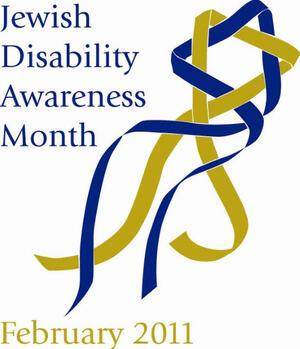תרומה –תצוה (Exodus 25- 30:10) T'rumah and T'tzaveh-- And you shall be a blessing....
February is Jewish Disability Awareness month. Awareness itself is an interesting term to wrap your mind around, it makes me ask: how are we building “awareness” and about what specifically? Are we being ‘aware’ just by engaging in conversations about disabilities? How do we talk about disability, in what context, and what actions are we taking in our society to help those who may have different physical or mental challenges. I took this week to reflect on what it means to be able-bodied, the ways in which each person is a gift, and the varying individual tools each person has at his/her disposal. Many organizations in the Jewish world are doing work to think through how to integrate Jewish Disability Awareness month within their own communities.
When it comes to talking about disabilities I am always struck by the importance of language. Have you ever thought about the negative association formed with words used to describe several handicaps? The implications from these words such as handicap, disabled, wheelchair bound, amputee, retard, etc, are all negative. Language is important, especially when it affects how we view people. One way to combat negative connotations of language is to state the person first rather than the handicap. For example the man who is blind vs. the blind man. This shows that it is only one aspect of his identity rather than the defining factor. Given that every person is differently able, and we each have different strengths and weakness it seems unfair to label someone who only has one arm, or will never surpass a third grade reading level as disabled, why not label each person as unique? Idealistic, I know, but I still feel there is a better way to describe people then by pointing out their limitations first. Instead of the girl with brown hair it becomes the deaf girl. When we talk about disabilities there is a certain amount of sorrow or unspoken pity for those who can’t do certain tasks. Take a minute to think of how exceptional those who are disabled would feel if we took the time to ask questions about their challenges and how they can accomplish something instead of making our own assumptions about their capabilities.
Continue reading at Tackling Torah >>
Elyssa Cohen is a Jewish social justice activist who discusses current issues through the lens of Torah wisdom at Tackling Torah.






